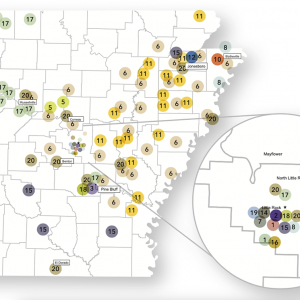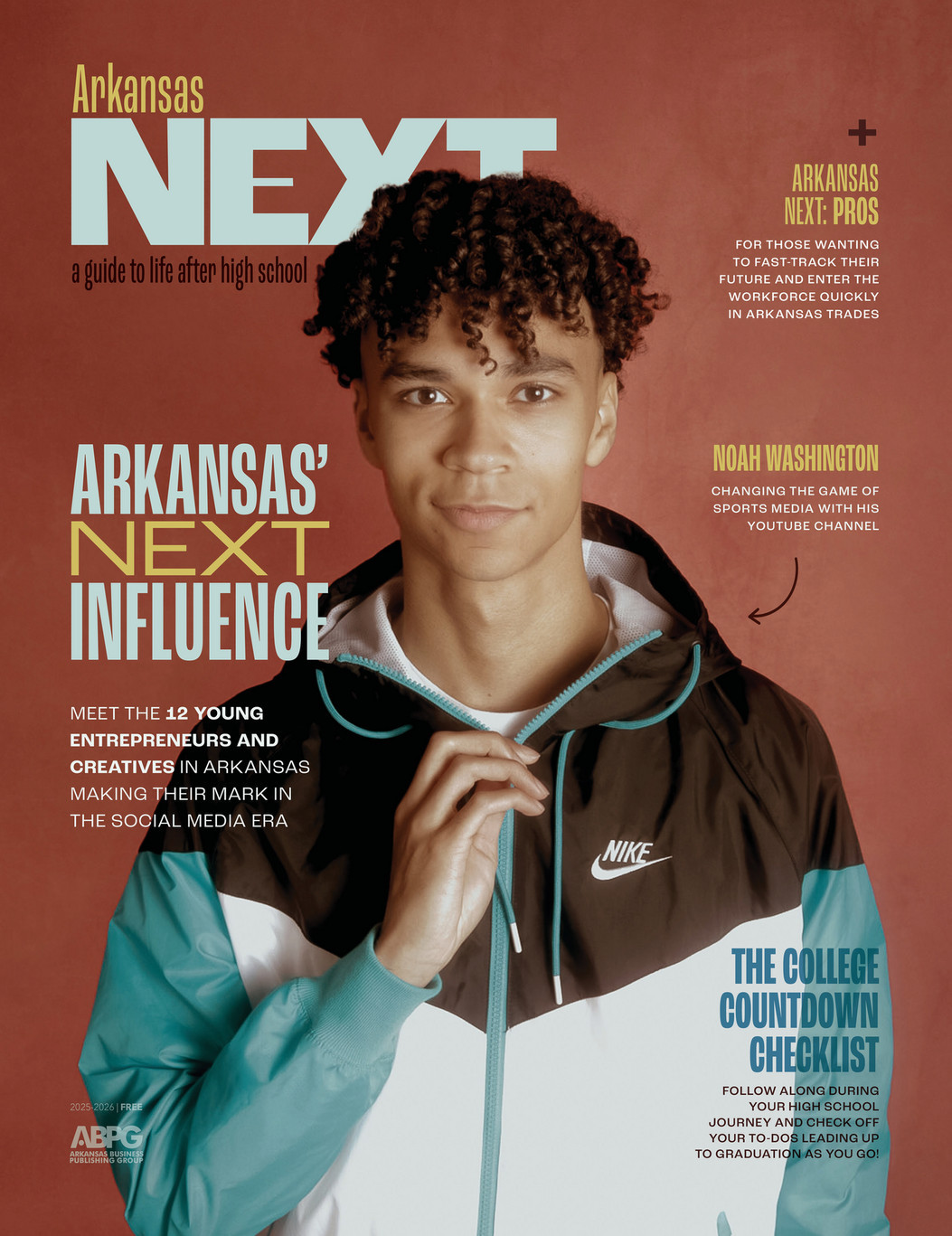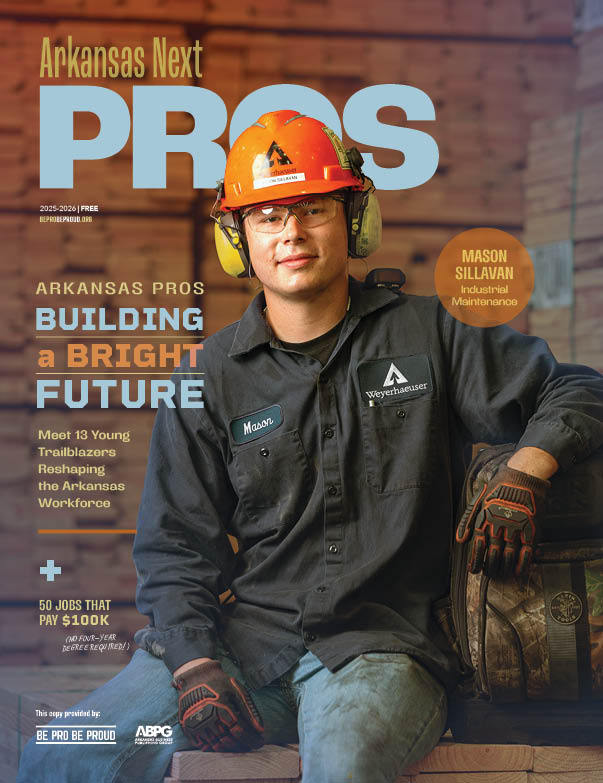How to Make Your Campus Visit Count
By Cody Elmore on Monday, September 19, 2011
It’s an exciting and intimidating, thrilling and scary experience to visit a prospective college. Butterflies flutter in your stomach as you climb out of the car and take your first breath of college air. Four years of your life hang in the balance as you make your way around the school grounds, getting a feel for the student life and campus community, as well as a sample of the independence college gives you. But determining what each college’s key characteristics are during a tour is harder than it seems. Important information can get lost or never uncovered in the shuffle. Use these tips and tricks from Arkansas college guides and current students to make the most of your campus visits.
Speak Up
The key to a successful campus visit rests in your willingness to be an active participant. Don’t let shyness hold you back when the tour guide asks if anyone has questions, because chances are, if you’re thinking it, someone else is too.
“To make sure you get the info you need, start a conversation with your guide,” said University of Arkansas incoming freshman Jacob Brady. “Getting the guide to open up can make the difference between a productive visit and a pointless one.”
For example, ask them what they like and dislike about the college. Interactions like this will reveal unique information that’s just as important as the facts in the orientation brochure. Interacting with the other students in your tour group can be beneficial too. Why leave campus with just a map of the grounds and a catalog of studies when you can leave with potential friends and connections?
Bring Your Parents
Whether they act like it or not, your parents are wary of all the responsibility you’ll undertake at college and this worrisome feeling can be fueled even more if they’re planning on helping you with the cost of college. Inviting them to tag along on your tours – and being cool when they ask a lot of questions – will alleviate some of their anxieties and maybe some of yours!
“I brought my parents to each and every campus I visited,” Ouachita Baptist University freshman Emily Pilcher said. “I value their input and I think choosing a college is something parents should be included in.”
Remember Money Matters
Face it, college is expensive; and with rising tuition prices, it’s only getting more so. Books, meal plans, room and board and various other expenses can land on the shoulders of newly enrolled students. The best people to talk about handling the financial stresses of college are the ones with the most experience – current students or graduates.
“Don’t be afraid to ask any and all questions – that’s what we are here for,” said Veronica Heatherly, Arkansas State University student orientation leader.
And finding good deals on books can make a substantial difference in keeping yours and your parents’ stress level low, so ask around about the cheapest bookstores.
Ask for Names
You’re walking past the buildings, reading the names on each of them, trying to get an idea of where you are in the collegiate maze. It’s a lot easier finding your way around if you know not only the names of the buildings but also what goes on in each one. When your tour guide shows you a giant five-story building that gleams in the sun, don’t just look in awe. Ask them what goes on in there.
“Find out which buildings are general education buildings,” Heatherly said. “The first two years of college are usually spent navigating those buildings and it’s not a bad idea to plan your housing around them for the start of your college career.”
This is a great way to determine the amount of money the university invests into different departments.
If the science building looks like an international airport but the business building looks like a rundown shack, chances are the science program is quite a bit better than the business department. Each school has a niche, whether it’s business, science, English, mass communications or any other type of major. Taking a gander around campus unveils hints as to what that university is good at.
Scout Out the Dorms
Most colleges will have a model dorm to show you on your visit, which is great for giving you an idea of how much room you’ll have and what’s needed to decorate your college turf. Bring a notepad and jot down a few items that you like or will need, such as lamps, rugs, mirrors, fans and electronics.
“Get on the school website and investigate some of the dorm halls before the tour,” Heatherly said. “Don’t settle for just seeing one room. Have an idea of which dorms you want to live in and get a good look at it during your visit.”
Guides usually show one dorm during the tour, but this sample room isn’t the only kind on campus. Most schools have premium accommodations and suite-style dorms, offering completely different living environments. Ask to see those too. Plus, it can’t hurt to peek around a few corners and take a look at some of the inhabited rooms, or to ask your guide for information about other on- and off-campus housing options. While you’re at it, make sure to scope out (and sample) each dormitory’s cafeteria.
Locate the Libraries & Labs
You should go ahead and get familiar with the library, computer labs and science labs. Countless hours of study time pile up over four years and an organized, well-functioning library and lab can make a world of difference.
“A lot of people crowd to the library trying to study,” Heatherly said. “If you can find another spot on campus or find out what times the library is the least occupied, it’ll help a lot once you start attending.”
Find out what campus facilities are open 24 hours for student use. Ask your guides or professors about the university’s library system. Is it sufficient for student research, and what are the amenities (Is there Wi-Fi? What are the printing capabilities? Does it have a 24-hour computer lab? Are there quiet rooms or private areas to study as a group or on your own?)
Learn “Greek”
You may not think of yourself as the fraternity or sorority type, but rush week can change all the perceptions you have about Greek life. Each fraternity and each sorority differ with every campus. The Pikes at Arkansas State University could be the polar opposites of the Pikes at University of Arkansas – Little Rock, and the same goes for sororities.
“Greek organizations usually are the most philanthropic groups on campus,” said Hunter Ward, University of Arkansas junior and Sigma Nu member. “It’s important to get an idea of how many on-campus Greek houses there are because if you’re wanting to rush you’ll be spending some time around them.”
If you have an interest in rushing, make sure to look at some of the houses on campus. Not only can some of the houses give you an idea of the type of fraternity/sorority that lives there, but they can also give you clues as to how the university feels about having them around. Also, it’s pretty fun just seeing what type of activities, Greek or not, go on around campus.
Go Into Town
The city surrounding a university is just as important as the university itself. Look at local businesses, the size of the city, the lay of the land, the weather and most importantly the people. Talk to locals about what they think about the college and the students who go there. This information can prove invaluable when it’s crunch time and you have to choose between two or three colleges.
“In most cities, no matter what, there is usually something that will appeal to just about every type of person,” Henderson State University sophomore Kindall Butzlaff said. “Some towns are just naturally more of a fit for a specific type of person.”
Stick Around
A campus tour daytrip can be overwhelming and exhausting, depending of the size of school and the distance of your drive. So consider an overnight or weekend trip instead. That way you have time to take a second stroll around campus and can experience the surrounding community.
University of Central Arkansas student orientation leader Amir Rostampour said scheduling your visit around campus events is another great way to experience the school. “Come to campus when something is going on so you can get a feel for the environment. Whether it’s a football game, pep rally, student organization fair or new student event day, those are the times you want to visit.”
10 Questions to Ask Your Tour Guide
- Can I see a few of the different residence halls?
- Is this campus considered safe; does it have campus police, security or emergency call boxes?
- Is there is a health center on campus or medical emergency facility? Is there a fee for students to use these?
- What’s the Greek life like on campus; do certain houses have different reputations?
- How does parking work on campus?
- How long are students required to live on campus or in college housing?
- What’s the best way to get involved on campus; what’s the best way to get more experience within my major (or interests) on campus?
- What’s the best place to get good deals on textbooks?
- What’s the surrounding community like?
- What’s there to do here on the weekends?















